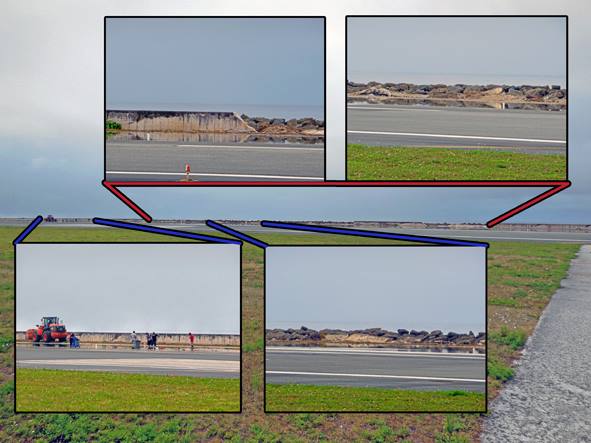
Climate Change Resilience
3 July, 2013, Nadi, Fiji - Marshall Islands National Weather office has taken active steps to set up an early warning system for king tides and storm surges.
This follows recent record high tides and storm surges that hit the capital Majuro, in late June which resulted in the closing of the Marshall Islands International Airport.

The king tides breached sea walls, flooded the airport and other parts of the country's most populated area where it destroyed homes and food gardens.
This comes as a double disaster for Marshall Islands as the country tries to deal with the extensive drought that hit the northern part of the country in recent months, leaving thousands of people without adequate clean drinking water and food shortages.
The Director of National Weather Service of the Republic of Marshall Islands, Reginald White said his office take the recent king tides and storm seriously.
He said they would ensure that early warning services are put in place to warn people in advance of expected disaster events.
Officials are working on installing warning points on the sourthern part of the country.
"We want to put these equipment in place as soon as possible to warn people in advance and give them ample time to evacuate and to minimise casualties. There were no casualties or injuries from the recent high tides and storm surge but houses were destroyed," White said.
He added that they would ensure that all the warning points are installed as soon as possible.
The Pacific Islands Global Ocean Observing System coordinator, Dr Phil Wiles from the Secretariat of the Pacific Regional Environment Programme (SPREP) said the Western Pacific Region over the past twenty years has experienced the fastest rate of sea level rise of 1cm per year while the global average is between 2 – 3mm per year.
Dr Wiles said sea levels have risen by up to 20cm in the western pacific region over the past 20 years and this makes the Marshall Islands more vulnerable due to its low lying islands.
"Since the water level is already high, the very strong tides raise the sea level further. This means that when high waves arrive they can travel over the reefs and damage coastal infrastructure and food gardens," Dr Wiles said.
With most of the country only meters above sea level the country is vulnerable to king tides and storm surges.
Dr Wiles points out that Fiji has also experienced similar king tides and storm surges, but the impact was less obvious on Viti Levu because it is not a low atoll.

This follows recent record high tides and storm surges that hit the capital Majuro, in late June which resulted in the closing of the Marshall Islands International Airport.

The king tides breached sea walls, flooded the airport and other parts of the country's most populated area where it destroyed homes and food gardens.
This comes as a double disaster for Marshall Islands as the country tries to deal with the extensive drought that hit the northern part of the country in recent months, leaving thousands of people without adequate clean drinking water and food shortages.
The Director of National Weather Service of the Republic of Marshall Islands, Reginald White said his office take the recent king tides and storm seriously.
He said they would ensure that early warning services are put in place to warn people in advance of expected disaster events.
Officials are working on installing warning points on the sourthern part of the country.
"We want to put these equipment in place as soon as possible to warn people in advance and give them ample time to evacuate and to minimise casualties. There were no casualties or injuries from the recent high tides and storm surge but houses were destroyed," White said.
He added that they would ensure that all the warning points are installed as soon as possible.
The Pacific Islands Global Ocean Observing System coordinator, Dr Phil Wiles from the Secretariat of the Pacific Regional Environment Programme (SPREP) said the Western Pacific Region over the past twenty years has experienced the fastest rate of sea level rise of 1cm per year while the global average is between 2 – 3mm per year.
Dr Wiles said sea levels have risen by up to 20cm in the western pacific region over the past 20 years and this makes the Marshall Islands more vulnerable due to its low lying islands.
"Since the water level is already high, the very strong tides raise the sea level further. This means that when high waves arrive they can travel over the reefs and damage coastal infrastructure and food gardens," Dr Wiles said.
With most of the country only meters above sea level the country is vulnerable to king tides and storm surges.
Dr Wiles points out that Fiji has also experienced similar king tides and storm surges, but the impact was less obvious on Viti Levu because it is not a low atoll.
